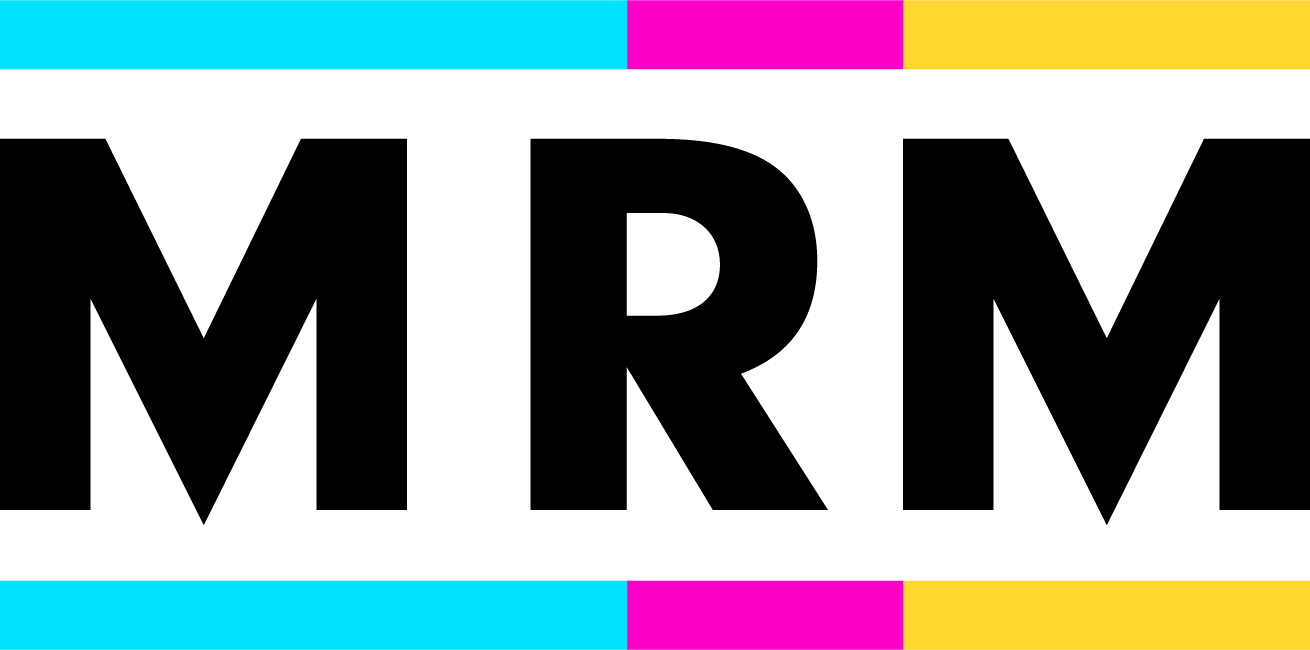Children's House
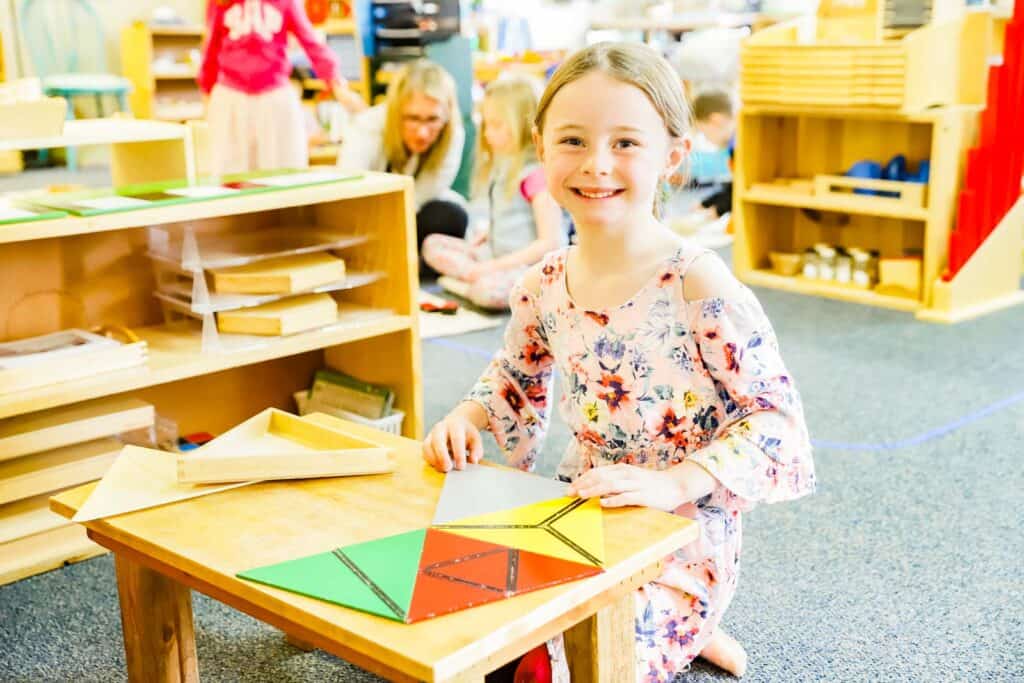
The Program
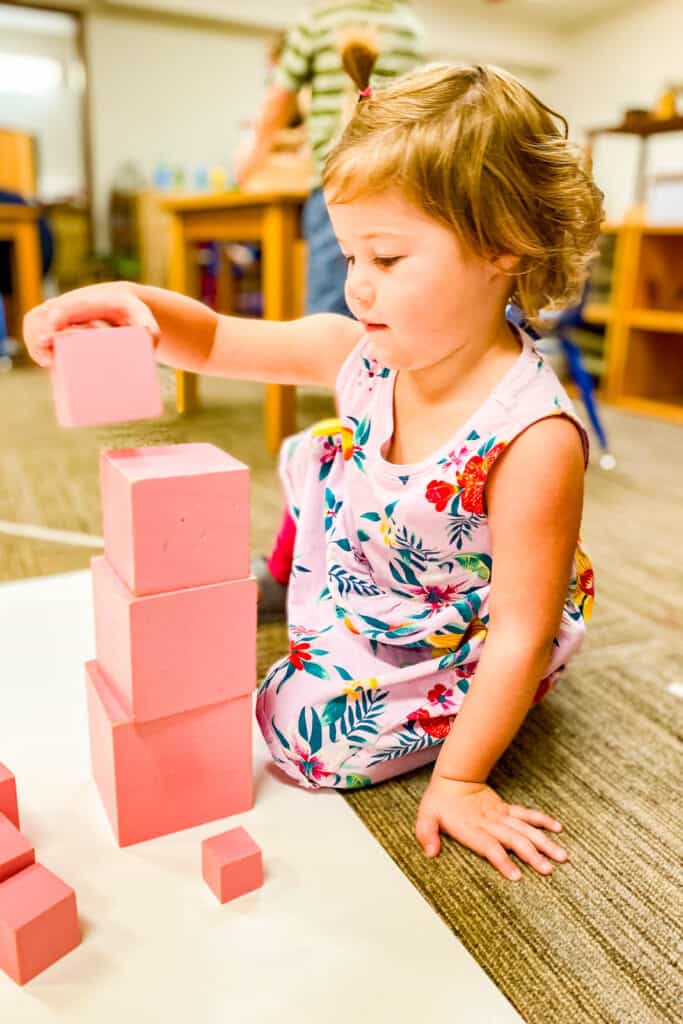
Children’s House students (2.5 – 6 years old) have unique learning needs, and Montessori trained teachers set up environments designed to meet those needs.
Children in these preschool classes work with hands-on learning materials in an array of subjects, with each lesson building towards the next, more complex one. Repetition is key for building neural connections, so children are free to engage with their chosen lesson on their own internal timeline. This work takes place during a 3 hour period, uninterrupted by transitions. The teacher gives individual lessons to each child, observing for understanding and connecting every learner to the next exciting challenge.
Over their three years in the classroom, children are increasingly knowledgeable and confident, able to act as stewards of the learning environment in their own right.
Class Environment
The Children’s House classrooms are lovely, welcoming spaces filled with plants, pets, Montessori learning materials, and child sized furniture. There is artwork on the walls, music in the air, and a quiet buzz of activity as children are immersed in concentration. These multi-aged classes provide a non-competitive environment in which the children assist one another in lessons or are free to work independently. Instead of sitting in desks in a row, children determine their workspace: at a child-sized table or floor mat, indoors or in the outdoor classroom. Families are often surprised how peaceful and engaged a group of young children can be! We understand that when learning is self-motivated and interest driven, it is a joyful pursuit.
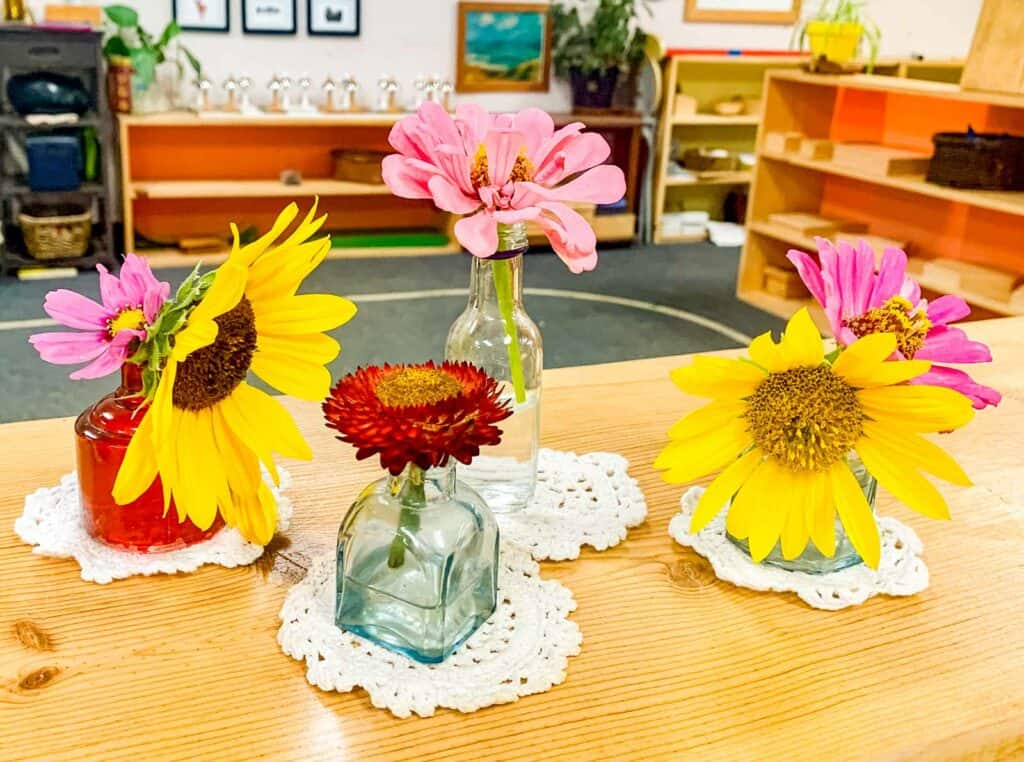
Curriculum
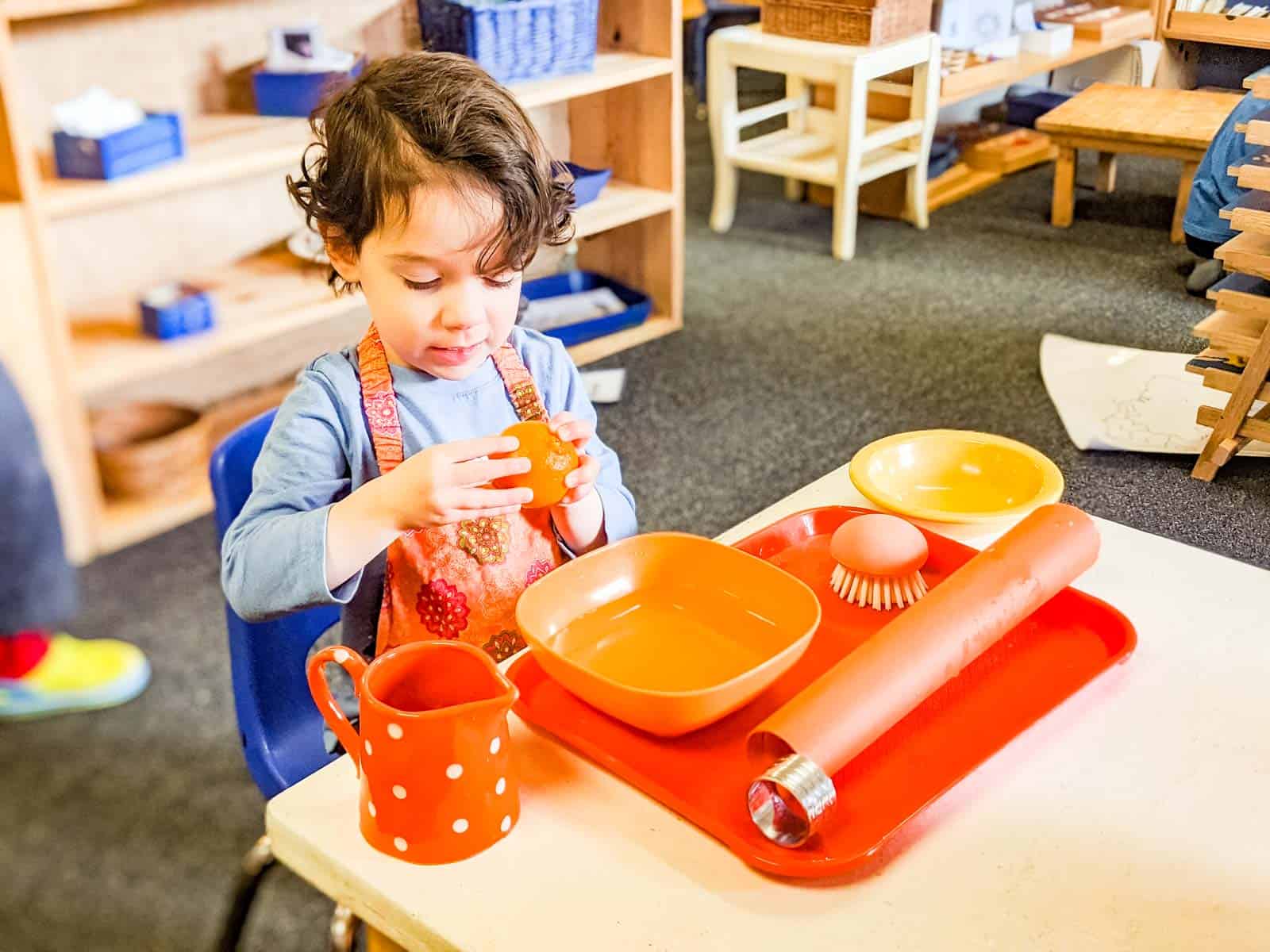
Practical Life
The foundation of a child's interactions in the classroom, practical life exercises give children meaningful ways to care for themselves, their environment, and the living beings around them. These exercises build independence and a sense of stewardship, as well as indirect skills like balance and coordination.
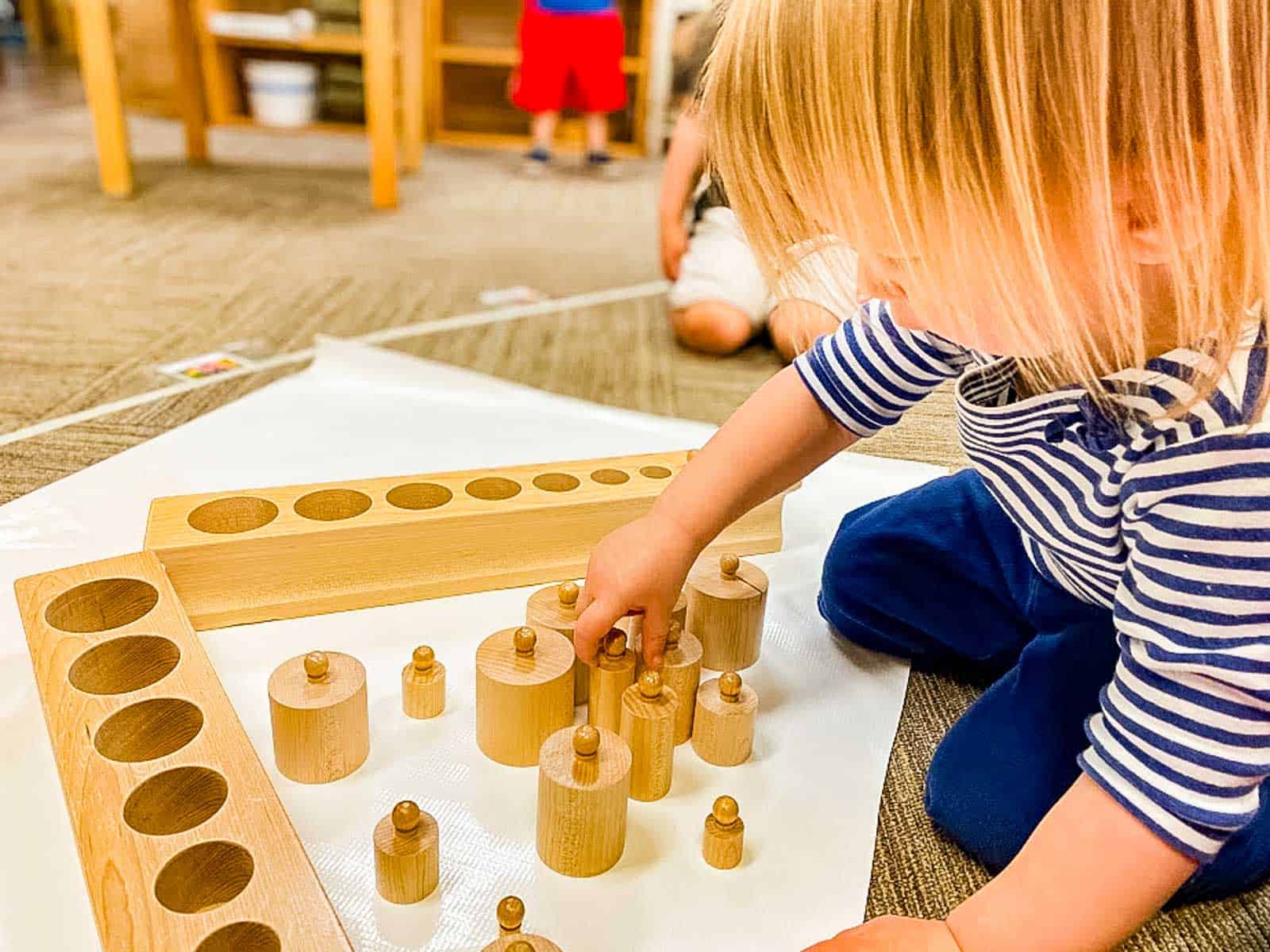
Sensorial
Dr. Maria Montessori's research cemented how connected a child's senses are to their cognitive development. She designed materials specifically to help children build a complex understanding of their surroundings, and these materials are used in our classrooms to this day.
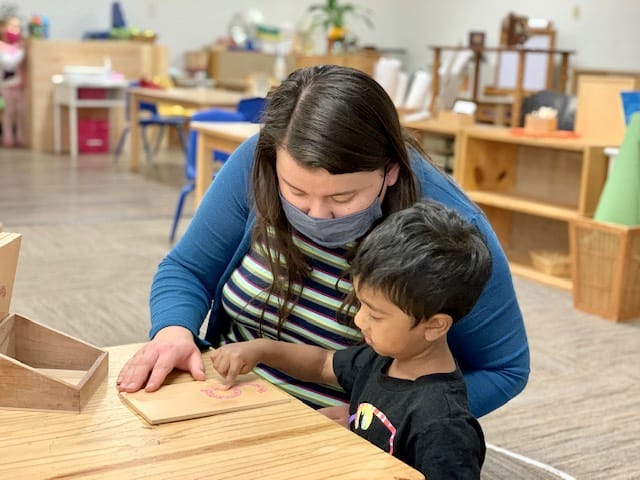
Language
The classroom is a language-rich space, where children's vocabularies grow through contact with conversations, songs, stories, poems, and manipulatives. As they master spoken language, they're guided into hands-on experience with the written word (first writing, then reading).
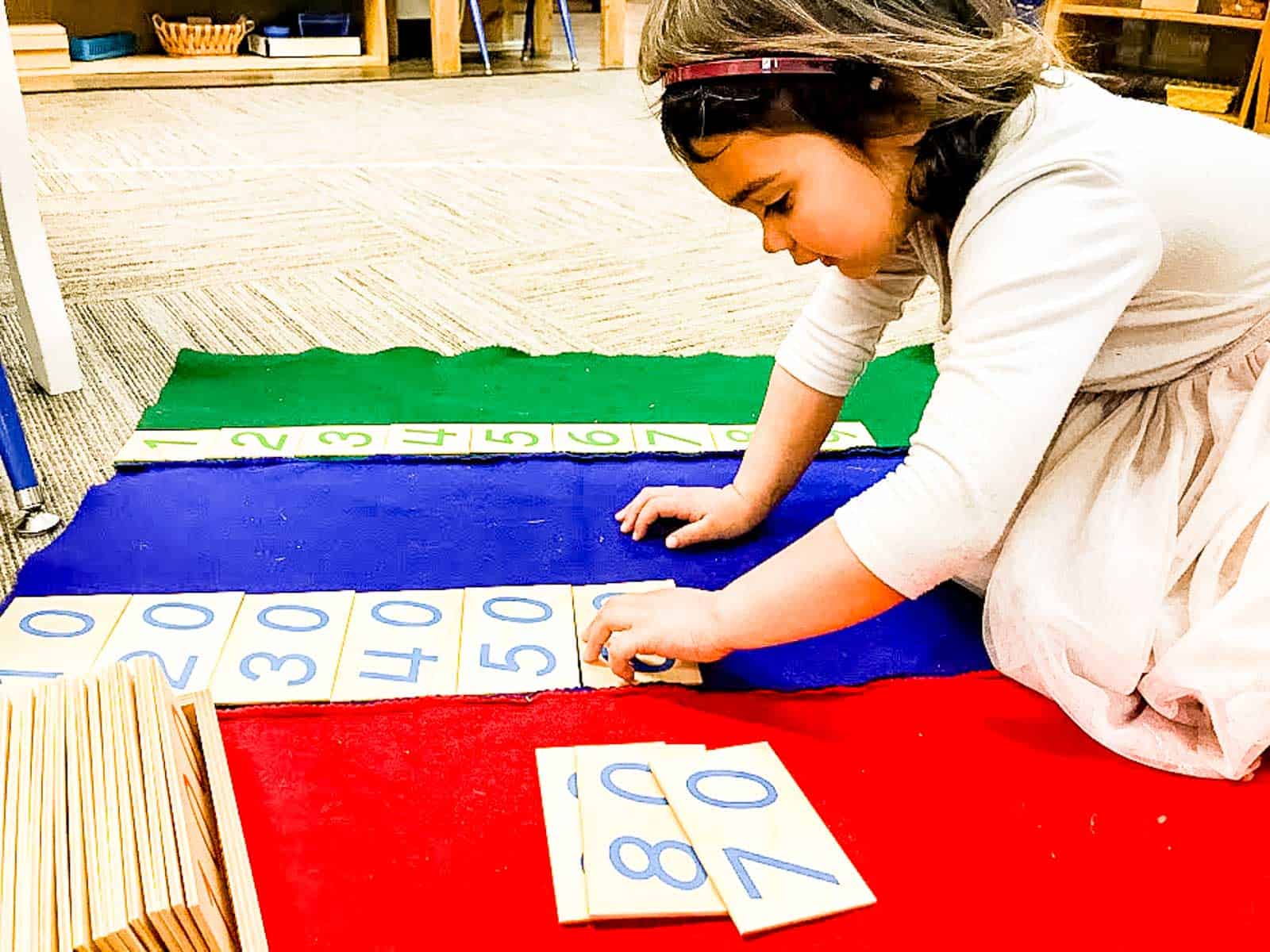
Mathematics
Montessori math sets a strong foundation for the logical skills your child will use through the rest of their life. The curriculum builds off of concrete materials, allowing a child to internalize concepts through their senses and establishing a deep, practical understanding of mathematics.
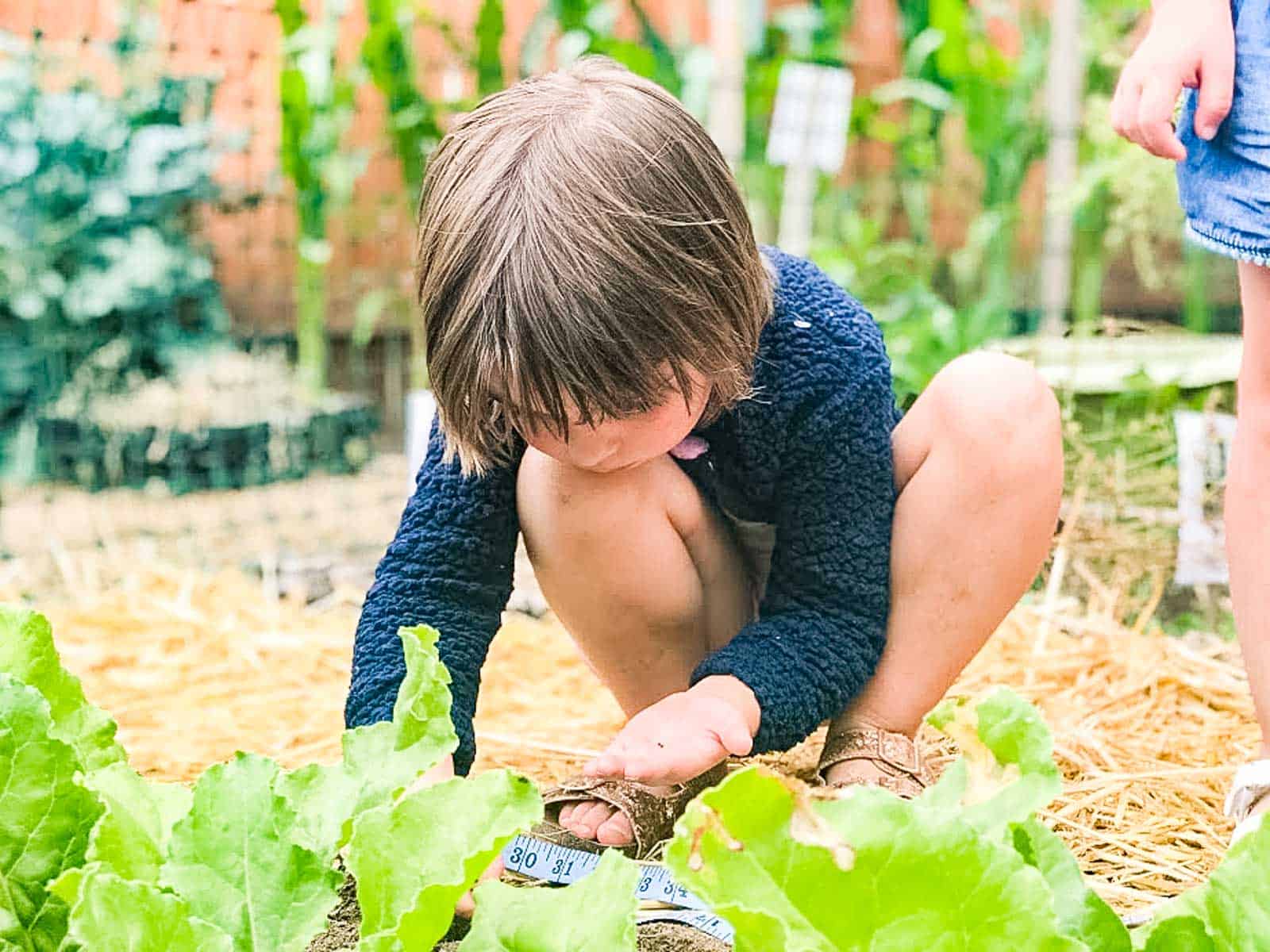
Science & Culture
This curriculum is connected not just to the materials on the shelf, but real-life experiences and conversations. These subjects are holistically tied to the rest of the curriculum: from counting and naming the pollinators in our garden, to sharing stories about children all around the world.
Enrichment Activities
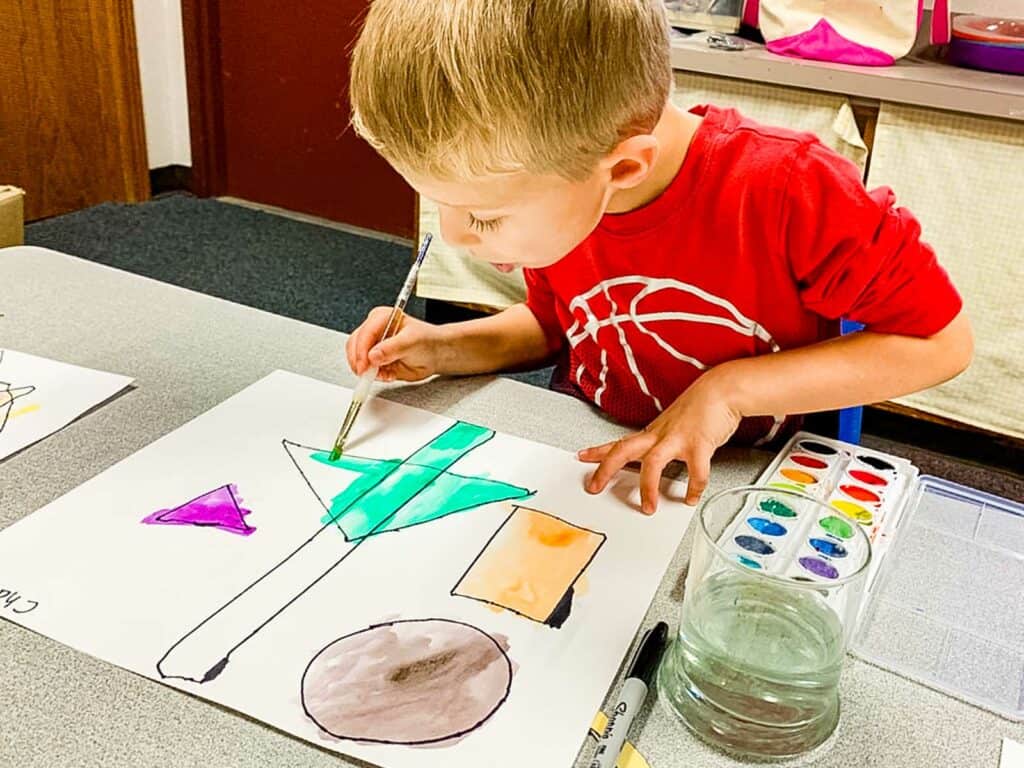
Art
Practical Life is a Montessori term that refers to daily living skills. These are the skills required in everyday life. When a child performs the exercises of practical life, character traits begin to emerge. These include refinement of movement, a sense of order, increased concentration, self-esteem, and independence.
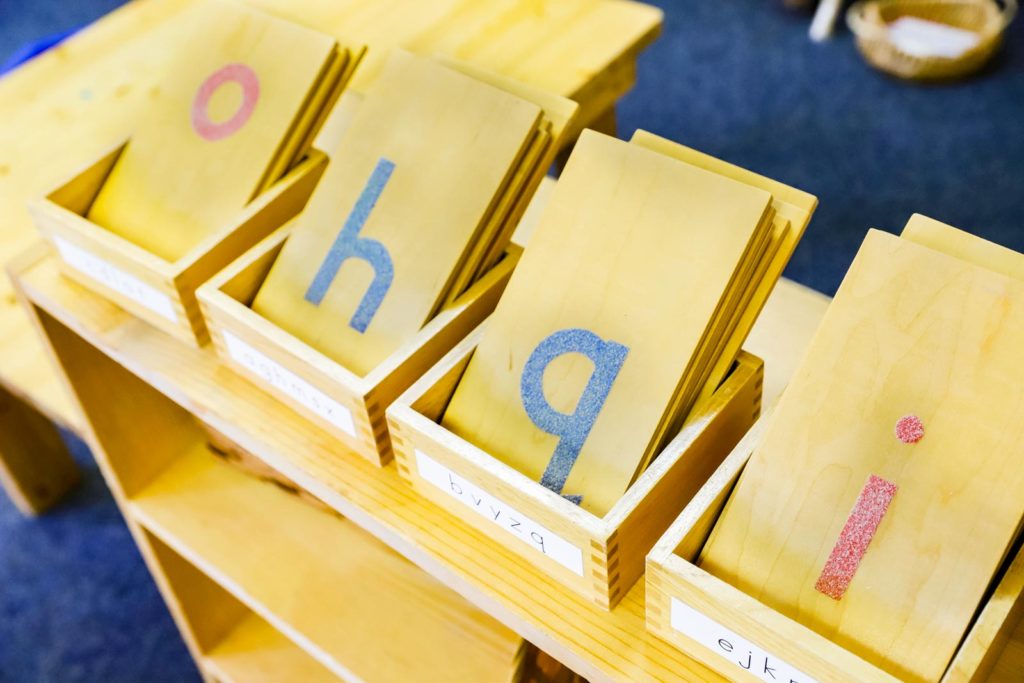
Spanish
Practical Life is a Montessori term that refers to daily living skills. These are the skills required in everyday life. When a child performs the exercises of practical life, character traits begin to emerge. These include refinement of movement, a sense of order, increased concentration, self-esteem, and independence.
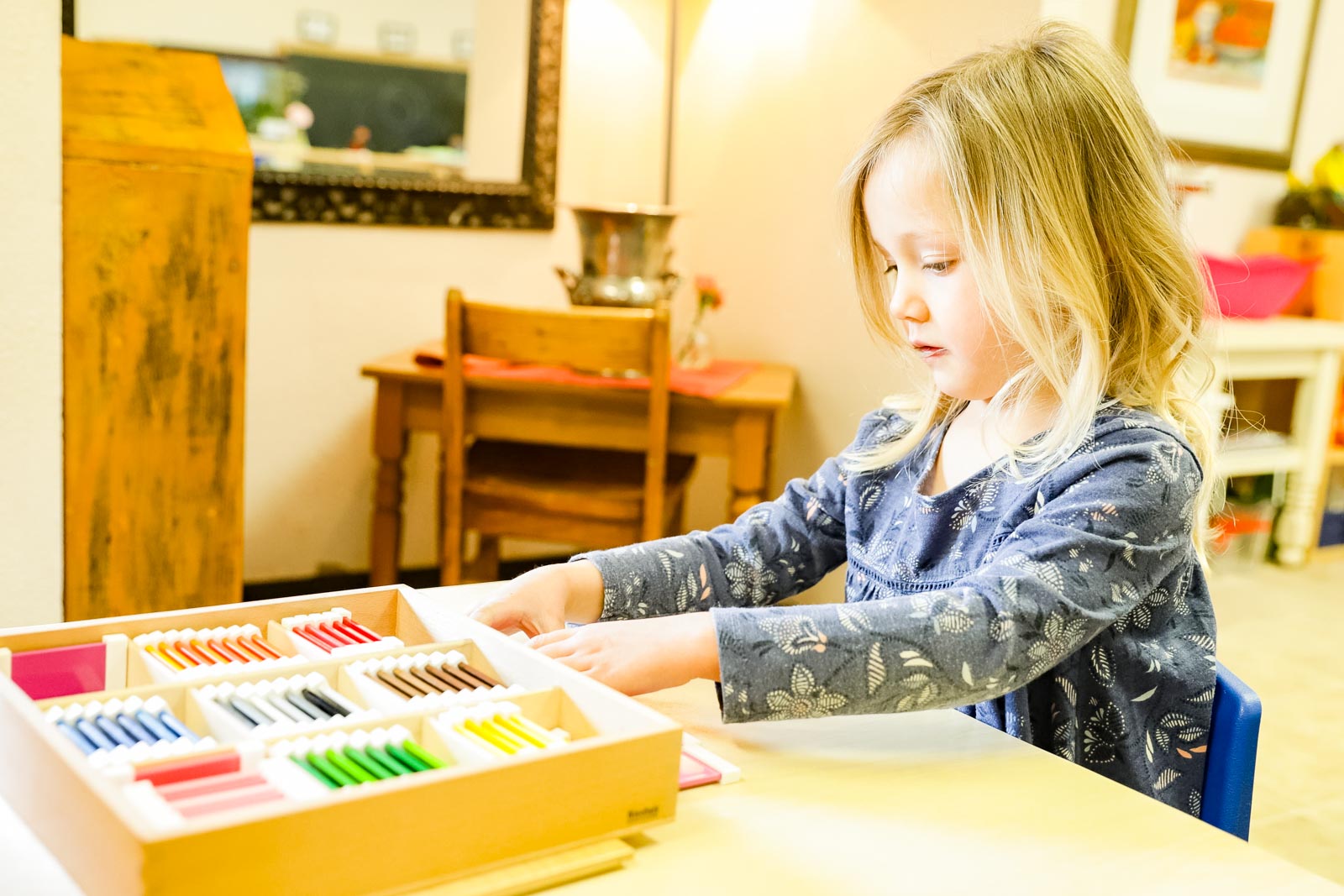
Library
Practical Life is a Montessori term that refers to daily living skills. These are the skills required in everyday life. When a child performs the exercises of practical life, character traits begin to emerge. These include refinement of movement, a sense of order, increased concentration, self-esteem, and independence.
Ready to Enroll?
We’re ready to hear from you! Click below to contact us and schedule your virtual tour.
Other Programs
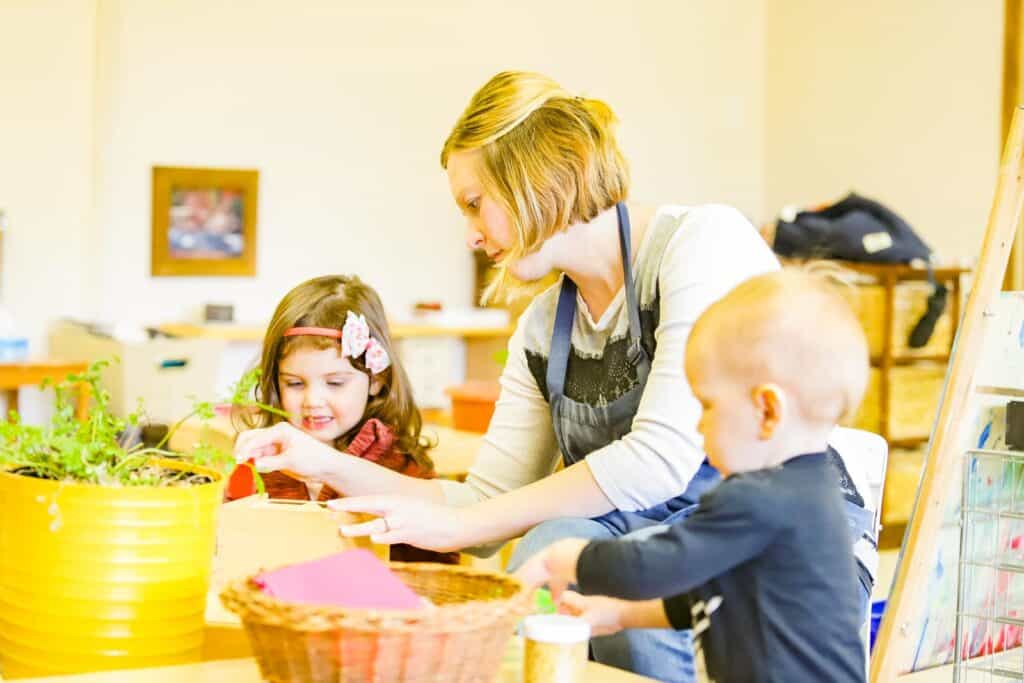
Toddler Community
Our beautiful, home-like toddler environments (18 months–3 years) feed a young child’s growing need for independence, exploration, and socialization.
The Lakewood Difference
Art
Lakewood Montessori's art-enriched environments set the stage for your child to blossom into a creative, curious, critical thinker.
Nature
Lakewood's holistic garden curriculum provides your child with opportunities to explore the natural world and their place in it.
Montessori
Montessori education follows a child's natural development with the aim of fulfilling a vital mission: to inspire a life-long love of learning.
